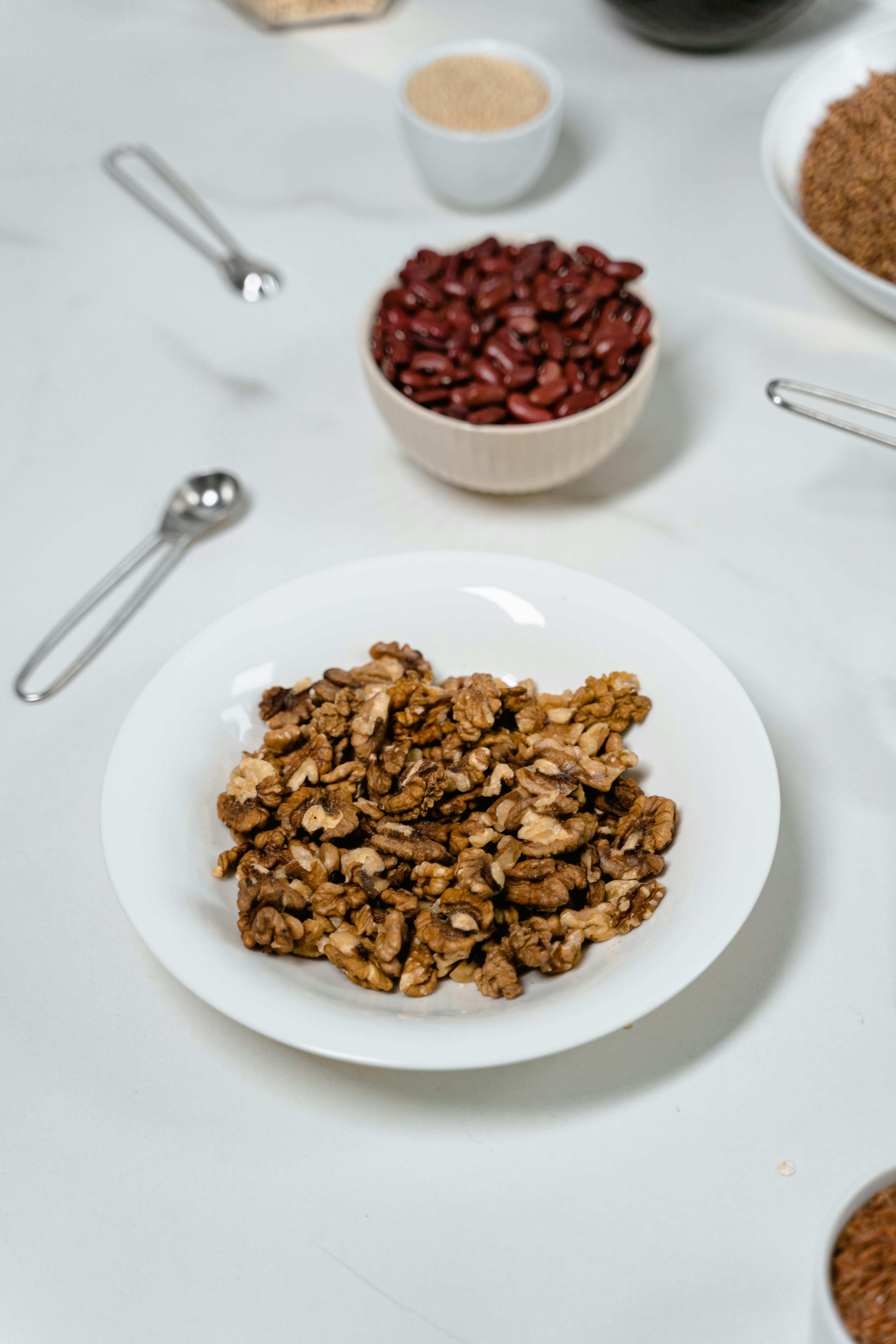Essential Guide to the Cortisol Detox Diet: Improve Wellbeing in 2025
Cortisol, often referred to as the stress hormone, plays a vital role in how our bodies respond to stress, maintain energy levels, and regulate various bodily functions. In today's fast-paced world, elevated cortisol levels can lead to serious health issues, including weight gain, anxiety, and hormonal imbalances. The cortisol detox diet is designed to help manage these cortisol fluctuations through specific dietary choices, lifestyle changes, and holistic approaches, ensuring we can effectively lower stress and improve overall wellbeing.
This article will delve into the principles of the cortisol detox diet, highlighting its benefits, the science behind cortisol management, and actionable strategies to integrate into your daily routine. By addressing what you eat and how you manage stress, you can successfully alleviate cortisol levels and enhance your quality of life.
Additionally, we will cover various cortisol-reducing foods, anti-cortisol recipes, and guidelines for a detoxifying meal plan. A comprehensive understanding of how nutrition and lifestyle changes can facilitate cortisol balance is crucial for sustainable health improvement. Key takeaways will be provided at the end to summarize the essential aspects of implementing this diet.
Understanding the Cortisol Detox Diet
Building on the fundamentals, the cortisol detox diet emphasizes the importance of detoxifying cortisol levels through food and lifestyle choices. This dietary approach focuses on reducing stress, promoting hormonal balance, and enhancing mental clarity.
What is the Cortisol Detox Diet?
The cortisol detox diet is a holistic approach aimed at managing cortisol levels through nutrition and lifestyle adjustments. This diet primarily focuses on incorporating whole, nutrient-dense foods while minimizing processed items, sugar, and caffeine. The goal is to restore the natural balance of cortisol in the body, enabling better stress management and psychological wellbeing.
The Pathway of Cortisol Detoxification
Cortisol is produced by the adrenal glands in response to stress. The cortisol detoxification process involves reducing excess cortisol production, primarily through dietary means. The body utilizes various nutrients to regulate cortisol levels and support adrenal health, and thus, maintaining a balanced intake of specific foods becomes essential.
Benefits of a Cortisol Detox
The cortisol detox diet offers numerous benefits, including improved energy levels, weight management, enhanced mood, and better sleep quality. By focusing on foods that lower cortisol and incorporating mindfulness practices, individuals can achieve a more balanced hormonal state.
Foods and Nutrients for Cortisol Management
Incorporating stress-reducing foods, such as those rich in omega-3 fatty acids, high-fiber foods, and antioxidants, can significantly impact cortisol levels. Foods like fatty fish, leafy greens, and berries can decrease inflammation and promote emotional wellbeing, forming a critical part of the cortisol management diet.
Challenges of Maintaining Balanced Cortisol Levels
Despite the benefits, maintaining balanced cortisol levels can be challenging. Stressful environments, inconsistent eating habits, and sleep deprivation can lead to elevated cortisol levels. This underscores the importance of adopting sustainable dietary and lifestyle changes that support cortisol reduction and overall health.
Nutritional Strategies to Lower Cortisol
With these basics established, it's essential to explore actionable nutritional strategies to effectively lower cortisol levels and manage stress. By understanding the specific foods to include and those to avoid, we can design a practical approach to achieving hormonal balance.
Incorporating Cortisol-Reducing Foods
Including foods rich in magnesium, omega-3, and vitamin C is crucial for cortisol management. Aim for a variety of whole grains, nuts, seeds, fruits, and vegetables. These foods can bolster your body's ability to cope with stress and provide essential nutrients for adrenal health. For instance, foods that reduce stress, such as avocados and leafy greens, offer antioxidants that combat oxidative stress while maintaining cortisol levels.
Anti-Cortisol Recipes to Try
When it comes to crafting meals that foster a cortisol-friendly environment, consider anti-cortisol recipes that prioritize whole, unprocessed ingredients. A smoothie made with spinach, banana, and almond milk is a nutrient-rich choice for breakfast. Dinner could be a quinoa bowl topped with fatty fish, roasted vegetables, and a sprinkle of nuts, further enhancing your diet plan.
Meal Timing and Cortisol Levels
Understanding the role of meal timing is another critical aspect of cortisol management. Eating breakfast within a few hours of waking can stabilize cortisol production throughout the day. Consider preparing your meals ahead of time to encourage nutritious eating habits while managing cortisol effectively.
The Importance of Hydration
Staying hydrated also plays a key role in maintaining healthy cortisol levels. Being mindful of fluid intake and opting for hydrating foods such as cucumber and watermelon can contribute to overall wellbeing and help alleviate cortisol spikes.
Stress Relief through Mindful Eating
Practicing mindful eating can significantly enhance your cortisol detox experience. This technique involves paying attention to hunger cues and savoring your meals, which can reduce impulsive eating habits linked to stress. Incorporate yoga and meditation into your daily routine to further support stress management.
Holistic Lifestyle Changes for Cortisol Reduction
This naturally leads us to the holistic lifestyle changes necessary for effective cortisol detoxification. Incorporating physical activity, sleep hygiene, and mindfulness practices can significantly contribute to lowering cortisol levels.
Exercise and Cortisol Management
Regular physical activity helps in regulating cortisol levels by easing stress and promoting overall health. Engage in activities you enjoy, whether it’s brisk walking, dancing, or yoga. Aim for at least 30 minutes of exercise most days of the week to reap the maximal benefits of reduced cortisol levels.
The Role of Sleep in Cortisol Balance
Prioritizing sleep hygiene is equally important in a cortisol detox plan. Aim for 7-9 hours of quality sleep each night, ensuring a comfortable sleep environment and a consistent bedtime routine. Lack of sleep can lead to hormonal imbalances, including elevated cortisol.
Stress Management Techniques
Incorporate various stress management techniques into your daily routine, such as deep breathing exercises, meditation, or journaling. These practices are effective in reducing the psychological effects of stress and managing cortisol fluctuations. Dedicate a few moments daily to practice relaxation techniques to help alleviate cortisol levels.
Utilizing Herbal Remedies for Stress Relief
Herbal cortisol reducers, such as ashwagandha and rhodiola, may provide additional support in your cortisol management journey. Check with a professional for personalized recommendations on effective herbal supplements that align with your needs.
Connecting Nutrition and Emotional Wellbeing
Finally, understand the connection between nutrition, emotional wellbeing, and cortisol levels. Adopting a healthy diet can not only provide physical benefits but also enhance psychological resilience against daily stressors. Build a well-rounded nutrition plan that includes foods to enhance mood and combat stress effectively.
Creating a Cortisol Detox Meal Plan
<pWith these principles in mind, it's essential to develop a practical cortisol detox meal plan to facilitate your journey toward managing cortisol effectively.Steps to Create Your Meal Plan
Begin by assessing your current diet and identifying areas for improvement. Focus on incorporating diverse whole foods that support adrenal health, such as high-fiber foods like beans, lentils, and whole grains. A nutrition plan tailored to your individual preferences will ensure you stay committed to the goal of lowering cortisol levels.
Examples of Cortisol-Friendly Meals
For breakfast, consider oatmeal topped with fresh berries and walnuts to ensure a quick energy boost while managing cortisol. A lunch option could include a spinach salad with grilled chicken, sunflower seeds, and a vinaigrette dressing. For dinner, indulge in a stir-fry featuring colorful vegetables and tofu for a fulfilling and stress-reducing meal.
Mindful Snack Choices for Cortisol Management
In addition to main meals, choose cortisol-friendly snacks that support your overall nutrition and help maintain consistent energy levels. Almonds, Greek yogurt with honey, or sliced vegetables with hummus are excellent options to have on hand. These choices can stave off hunger while complementing your detox diet.
Staying Committed to Your Plan
To stay committed to your meal plan, track your progress and adjust your plan as needed. Keeping a food diary can help you identify triggers and make necessary improvements. Regularly evaluating your food choices and feeling the benefits can further motivate you on your journey.
Consulting Professionals for Guidance
Lastly, seek professional advice on nutrition when necessary. Consulting with registered dietitians or nutritionists will provide you with personalized guidance tailored to your unique lifestyle and health needs, ensuring you are on the right path to effectively manage cortisol.
Conclusion
Implementing the cortisol detox diet involves significant lifestyle and dietary changes that can lead to profound improvements in overall health and wellbeing. This guide has outlined the essential steps, food choices, and holistic approaches necessary for managing cortisol effectively.
By integrating wholesome foods, establishing mindful practices, and making lifestyle adjustments, you can alleviate cortisol levels while enhancing your quality of life. Remember to remain patient and flexible as you navigate this journey, and continuously seek support and knowledge to maintain your progress.
For further reading on cortisol management and related topics, check out our detailed articles here and here.


